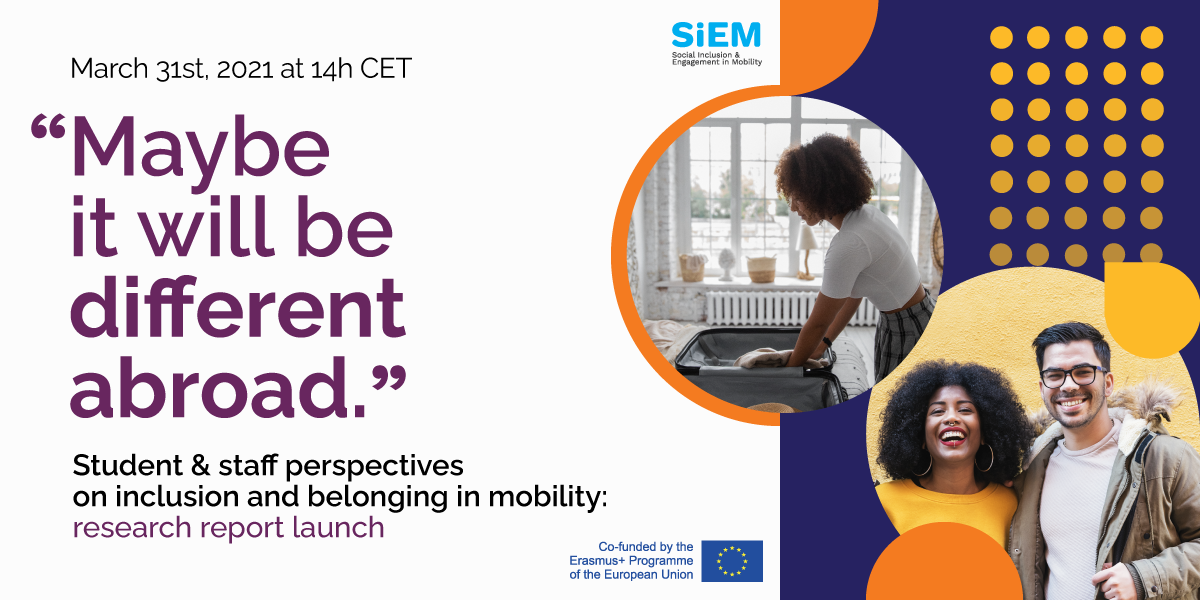
Students from less advantaged backgrounds and from underrepresented groups that go abroad tend to get better degree results, have lower unemployment rates, are more likely to start their career in graduate-level jobs and have a higher starting salary than their non-mobile peers. However, while they stand to gain from this experience, these students are underrepresented in mobility, with only 7% of Erasmus students coming from a disadvantaged or underrepresented group.
Social inclusion is a priority for the next Erasmus+ programme, but very little hard data is available on the accessibility of the current programme and what measures could be put in place to improve access and participation.
In the course of 2020 the Social Inclusion and Engagement in Mobility team has worked to gather answers from over 12.000 students and 750 staff members across Europe and beyond.
Join us on March 31st, 14h to 16h CET, to learn more about our first research outputs, during the "Student & staff perspectives on inclusion and belonging in mobility" conference.
Click here to register for the research report launch!
Programme
14:00 -14:10 Opening and Welcome
Kostis Giannidis, President of the Erasmus Student Network
14:10 - 14:40 Student & Staff perspectives on Inclusion and Belonging in Mobility
Findings and Recommendations of the Research
Celia Partridge, Assistant Director, Partnerships and Mobility, UUKi
Wim Gabriels, Policy and Project Manager, Erasmus Student Network
14:40 - 15:20 Panel Discussion: How to widen participation of underrepresented groups in mobility programmes
Panelists to be confirmed
15:20 - 15:40 Guiding tools for Universities
João Bacelar, Director of the European University Foundation
15:40 - 15:45 Conference Closing
The Social Inclusion and Engagement in Mobility (SIEM) project is coordinated by the Erasmus Student Network and a cooperation with Universities UK International and the European University Foundation, YES Forum, Vrije Universiteit Brussel (BE), University of Vigo (ES), Masaryk University (CZ), University of Latvia (LV), ESN Spain (ES), and ESN France (FR).
The project has two global objectives:
- Widening participation of underrepresented groups of the Erasmus+ programme in order to make the programme more inclusive;
- Increase the interaction between international students and local communities with fewer opportunities in order to increase integration and intercultural exchange.



Follow ESN